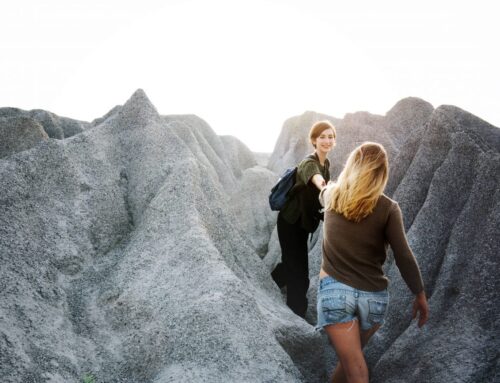 What is a Carbon Footprint?
What is a Carbon Footprint?
Carbon Footprint: the amount of greenhouse gases and specifically carbon dioxide emitted by something (as a person’s activities or a product’s manufacture and transport) during a given period
Not too long ago, a good friend of mine announced to a woman with whom he was carpooling that his wife was expecting their fourth child. Her response? She had but two words for this man and they were not “Wow! Congratulations” as they should have been. What were they? “Carbon footprint” While this is incredibly rude, the message she was trying to smugly get across, was so unnecessary.
Don’t get me wrong, I think we should all be taking care of the earth and I know that having a baby does increase one’s carbon footprint, but I don’t think it’s quite as bad as some people make it out to be. We have a responsibility to take care of the earth. We cannot expect to treat it poorly, and have it continue to support us. My husband and I have four children ourselves and we try very hard to be conscious of the earth and get our children involved as well.
While my family eats more food than those with fewer people, it usually takes the same amount of energy to make the meal with more food. I often buy the food in bulk, which uses less packaging and I cook in bulk, which uses less energy than cooking in small batches. The heating and cooling of my house uses the same amount of energy as it would if it had fewer people living within it. I wash more clothes and dishes, but I also encourage my children to wear some things more than once and to use one drinking glass throughout the day to cut down on this. Cleaning my house uses the same amount of energy as it would if there were fewer people also. We use homemade, environmentally friendly cleaners that cut costs as well as being friendly to the earth.
Each time we travel, we contribute to the pollution in the air. A larger car is needed to drive around our entire family, which does cause more pollution than that of a smaller car. But one thing we’ve noticed is that with more kids, we don’t go out quite as often, and when we do, we plan all of our errands for one day, thereby causing us to drive less often.
My husband and I also practice eco-friendly birth control. We use Natural Family Planning (NFP). Usually the people who chastise those with more than 2.1 children are those who encourage the use of artificial contraceptives. Talk about a carbon footprint! The pill is an endocrane disruptor that gets excreted through urine into our wasteway systems and water supply. Synthetic estrogen is very difficult to remove from the wasteway systems. Some studies have even linked it to infertile marine species and intersex marine species. Sometimes, the same people who cry foul at chemical companies for polluting our streams and water systems are the very same people who send dangerous chemicals back into the water way from their very own toilet. Condoms are made of biodegradable latex, but the chemicals that line them basically cancel that out. The foil or plastic that they are wrapped in are hardly friendly to the earth. Spermacides are harmful manmade chemicals that send off terrible emmisions into the atmosphere. So, keeping your birth control method environmentally friendly is a great thing to do.
Our family also has a large garden, and we compost much of our waste. Our children all help plant and take care of the garden. We visit local farms and pick our own fruit. We buy locally grown produce and meat for our family to consume. This doesn’t seem like much, but purchasing locally grown foods cuts down on transportation costs which uses billions of gallons of fuel internationally each year. Each year, we can and preserve hundreds of pounds of food for the colder months. Packaging and preserving foods from distant places uses materials that often cannot be recycled and this ends up in landfills.
We also choose to cloth diaper our children. This wasn’t always the case. We used disposables with our first child, but after living in Italy during the garbage strike, and seeing all the diapers just pile up and pile up, we decided to see if we could help reduce the number of diapers piling up. The next three were all cloth diapered, and I really have to say, it’s not as daunting as I thought it would be.
I know there are many other ways to take care of the earth. Getting your children involved is important as well because you are also teaching them great lessons in sustainability that they can use once they are grown up.
Having more kids is not environmentally irresponsible and it’s not going to drain the world of its resources. Let’s not think of the unborn as surplus humans. The are just as special and valuable. Let’s think of them as fellow Earthlings and teach them to contribute and live sustainably. We can all help take care of our environment, no matter our family size.




Leave A Comment